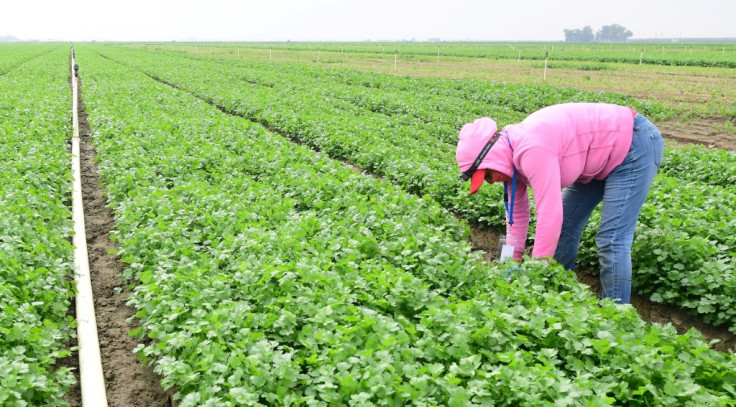
Immigrant farmworkers across the United States are scrambling to safeguard their families ahead of President-elect Donald Trump's pledge to carry out the "largest deportation in U.S. history." Legal aid groups report a surge in demand for services as workers prepare for the worst, including designating temporary guardians for their children, ensuring access to wages, and securing travel permissions for their families in case of deportation.
The U.S. agricultural sector heavily depends on immigrant labor, with the Department of Agriculture estimating that about half of hired farmworkers lack legal status. According to the federal agency, immigrants account for two-thirds of the nation's crop farmworkers, with two out of five lacking legal authorization to work in the country.
Trade groups warn that large-scale deportations could disrupt food production, as California alone relies on undocumented workers for 75% of its farm labor, according to the University of California-Merced. Labor shortages could not only disrupt the agricultural supply chain, but could also lead to higher food prices and increased reliance on imports, experts warn.
"The administration is not yet sworn in, but people are already afraid," Sarait Martinez, executive director of the Centro Binacional para el Desarrollo Indígena Oaxaqueño (CBDIO), which supports indigenous Mexican farmworkers in California's Central Valley, told Reuters.
Workshops led by groups like CBDIO have grown in popularity, with some reporting a tenfold increase in participation. Sessions include role-playing confrontations with immigration officials and preparing legal forms to secure children's guardianship and travel permissions in case of deportation.
The incoming administration has stated it will prioritize deporting individuals deemed threats to public safety or national security. However, Trump's transition team spokeswoman Karoline Leavitt said the president plans to use federal and state powers for what she described as the largest deportation operation in U.S. history, including undocumented workers.
California's agriculture industry, responsible for a third of the country's vegetables and most of its fruits and nuts, faces particular risk. Despite the high concentration of undocumented workers, rural areas often lack sufficient legal resources. There, the Valley Voices group has expanded immigration services and is developing a rapid response network for potential raids.
Advocates emphasize that farmworkers, many of whom speak indigenous languages rather than Spanish or English, are especially vulnerable.
Nationwide, organizations are scaling up efforts to support workers. For instance, New York City, home to an estimated 412,000 undocumented immigrants as of 2022, is witnessing a surge in sessions and workshops aimed at empowering people without legal status.
California has also experienced a surge in 'know-your-rights' workshops. Attorney General Rob Bonta has introduced new guidance for immigrant communities in an effort to inform and protect vulnerable populations amid concerns over potential deportation policies under the incoming administration.
In Texas, the migrant rights group La Union del Pueblo Entero (LUPE) is advising the state's estimated 1.6 million undocumented residents to plan ahead in case of detention, as deportation risks rise with Trump in power.
Meanwhile, the American Civil Liberties Union (ACLU) is gearing up to challenge state laws that could facilitate mass deportations, with the goal of creating legal barriers to hinder large-scale raids once the Republican takes office.
The organization's southern border chapters will launch a "robust challenge" to contest the expansion of expedited removals and oppose the construction of new mass detention facilities.
© 2025 Latin Times. All rights reserved. Do not reproduce without permission.








